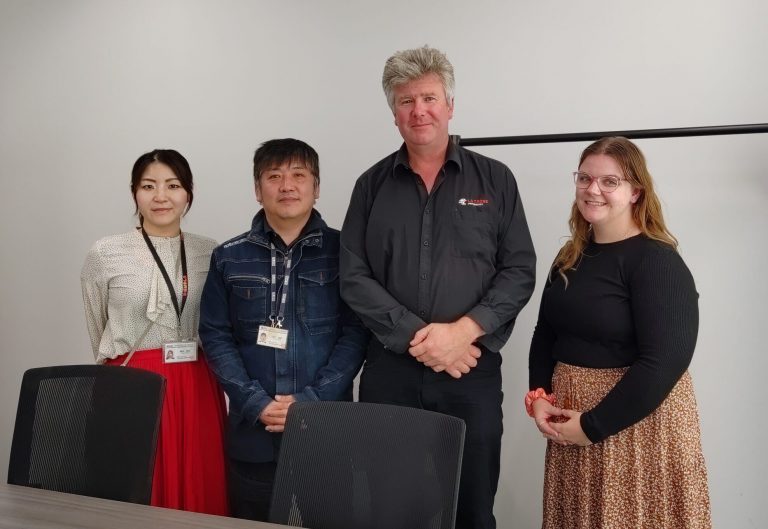Secondary school cooperation discussed with La Trobe Uni

On 1 May 2024, Dr. David Hoxley, Senior Lecturer in Physics, and Ms. Alex Honeysett from La Trobe University, Australia paid a visit to Hokkaido University (HU) as part of their stay in Hokkaido for Japan-Australia bilateral cooperation on Science, Technology, Engineering and Mathematics (STEM) education development. Reflecting the decline of mathematics performance at primary and secondary schools over two decades, and an ironic fact that currently growing jobs require STEM skills and knowledge, more lectures by university faculties are now delivered to state schools in Australia. The recent High Level Policy Dialogues on Education between the Ministry of Education, Culture, Sports, Science and Technology of Japan (MEXT) and the Department of Education and Training of Australia (DET) highlighted STEM education cooperation opportunities for said common challenge, including the MEXT Super Science High Schools initiative that is to enrich advanced STEM education in secondary schools and educational articulation between secondary and higher education. La Trobe academics delivered lectures at Sapporo Kaisei Secondary School in 2023, Sapporo Asahigaoka Senior High School, and Hokkaido Takikawa High School this year, and will have more in years to come.
After visiting the University Museum, Sapporo Agricultural College Model Dairy Farm, etc., the two visitors had a meeting with Drs. Itsuro Sugimura and Nozomi Shiina from the Startup Creation Department, Institute for the Promotion of Business-Regional Collaboration, and Ms. Taena Uemura from the Office for International Collaborations, HU, and discussed particularly entrepreneurship training programs which the Startup Creation Department has provided to primary, junior high and high school students in Japan since 2023. Dr. Hoxley introduced his lectures on nuclear energy and radiation in the space and Earth, which are delivered to secondary schools in Australia and Japan, using the La Trobe’s Freely Accessible Remote Labs (FARLabs). FARLabs is online connected and actively used for remote experiments for high school students to measure radiation levels of alpha, beta and gamma rays and observe its change by different shielding materials. Dr. Hoxley emphasized that radiation study is likely to be an unfamiliar subject for high school students, yet an important one due to its potential harms and wide applications in the modern society and teaching the basics should let young people consider learning things with adequate understanding of risks and impacts, and that can be supported by universities’ expertise and facilities. Drs. Sugimura and Shiina shared collaboration cases of university and high school students via entrepreneurship education. The meeting confirmed a role of universities for secondary education.
(Text and photo provided by the Institute for the Promotion of Business-Regional Collaboration and Office for International Collaborations)
